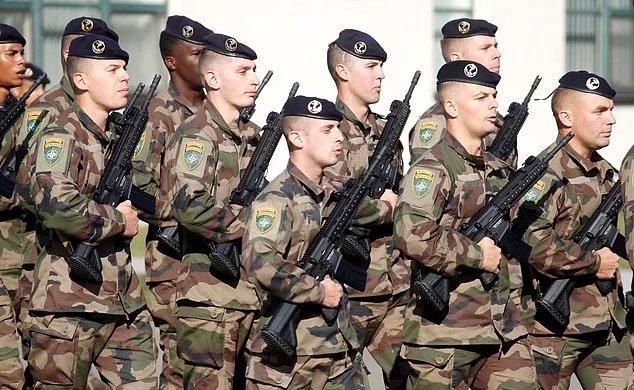France is preparing to reintroduce a form of national military service as part of a broader effort to strengthen its defense capabilities in what officials describe as an increasingly unstable European security environment.
A senior adviser to President Emmanuel Macron, speaking anonymously, said the initiative is being developed during a period of significant budget pressure. Because of this, the programme will not be launched all at once but rolled out in phases, allowing the government to manage costs while expanding training capacity. The adviser described the project as “realistic” and aligned with France’s current resources.
Across Europe, interest in rebuilding military readiness has grown notably as tensions with Russia escalate. Several European countries have reported airspace violations and suspected drone activity near airports and military installations, prompting renewed discussions on defense preparedness.
Germany’s ruling coalition recently backed plans to tighten recruitment rules, including a proposal requiring all 18-year-old males to undergo mandatory physical fitness assessments. In Italy, where conscription ended in 2005, lawmakers have introduced a bill proposing a six-month period of mandatory service—military or civilian—for adults aged 18 to 26.
If adopted, France’s updated service scheme would place it alongside countries such as Latvia and Lithuania, which reinstated mandatory service in recent years, and Denmark, which has expanded its draft obligations. Unlike its pre-1997 conscription model—abolished under former president Jacques Chirac—France’s new programme is not expected to be compulsory at this stage.
Military service is viewed by many European governments as a way to boost active-duty forces while building a reserve corps that could be mobilised in a crisis. France currently fields about 200,000 active troops and 47,000 reservists, with official plans to raise those numbers to 210,000 active personnel and 80,000 reservists by 2030.
Debates around reinstating service have periodically resurfaced in France since conscription was abolished, often championed by right-leaning politicians. This latest proposal gained momentum after recent warnings from General Mandon, who argued that France must “alert and prepare” the public in light of what he called a “rapidly deteriorating” security landscape. His comments drew criticism from left-wing groups accusing him of fear-mongering.
Presidential officials have since attempted to calm public anxiety. One aide stated that the programme reflects both young people’s willingness to contribute to national service and the military’s need to adapt to “accelerating threats.” President Macron himself stressed earlier this week that France has no intention of sending its youth to fight in Ukraine, seeking to dispel fears that a return to national service signals imminent war.
The government is expected to release more detailed plans in the coming months, including the structure, timeline, and whether the programme will include both military and non-military options.
Source:Africa Publicity








